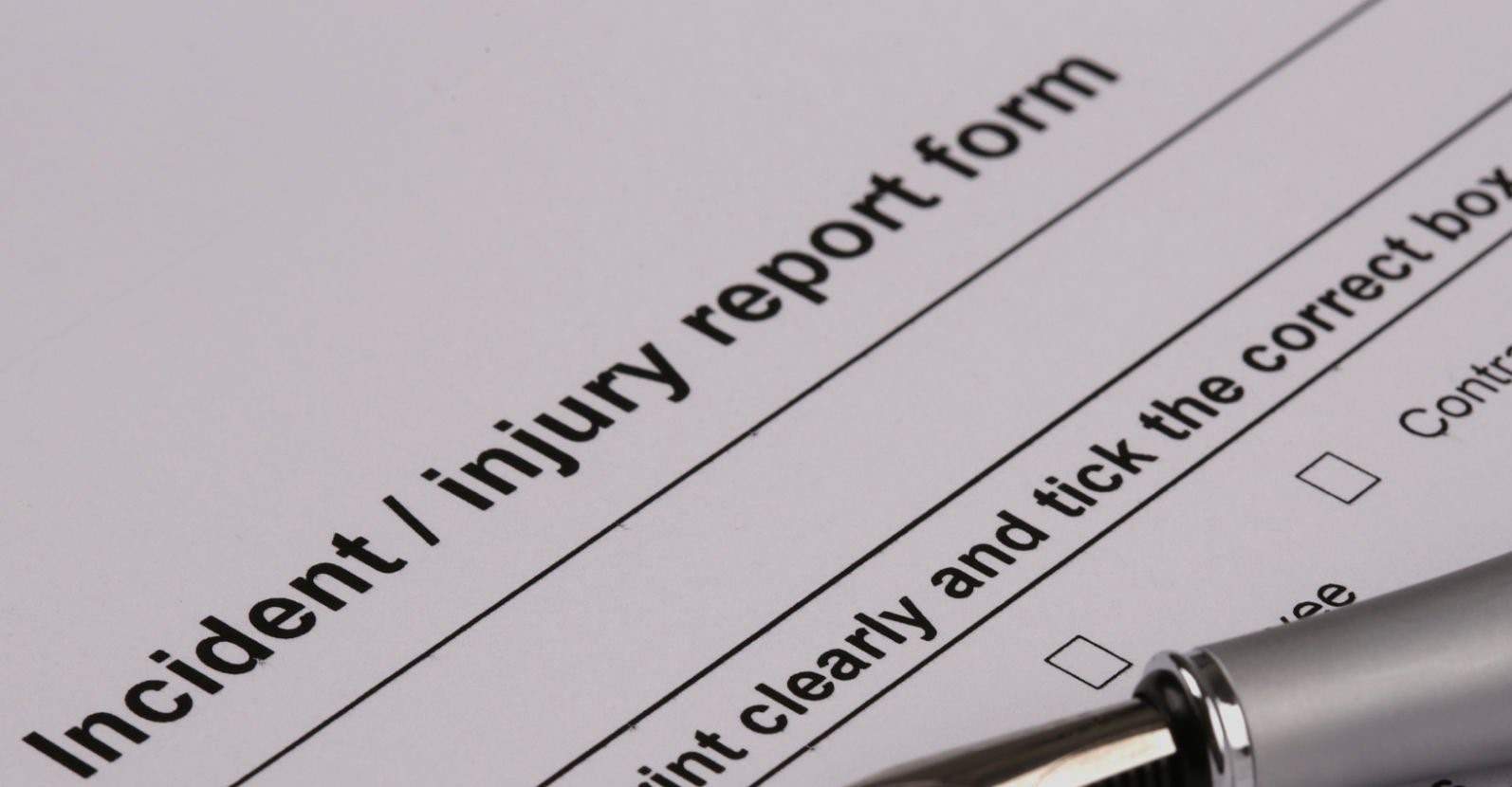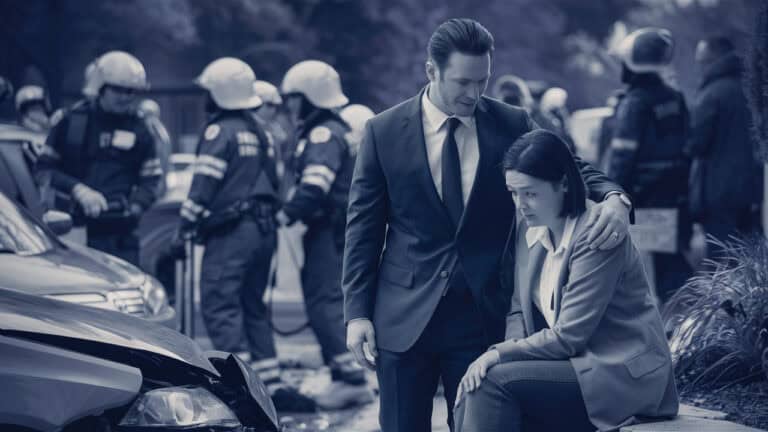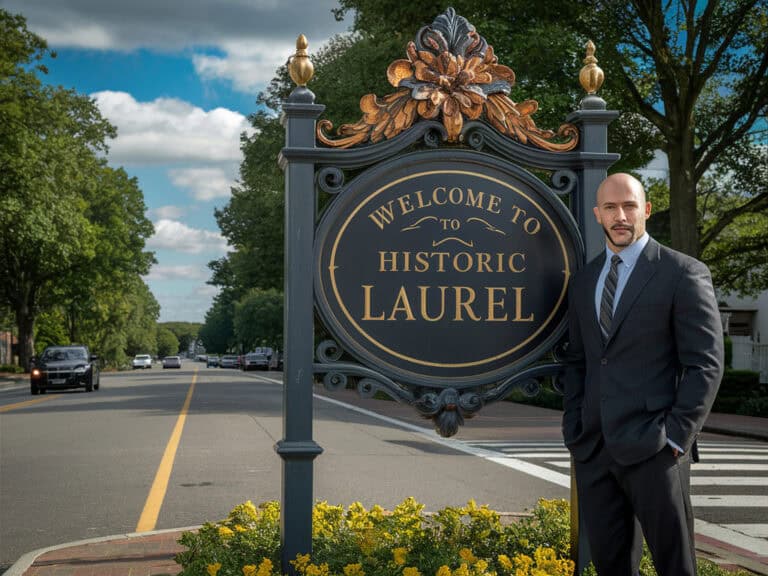Have you ever found yourself thrust into a world of legalities and jargon, thinking how to gather evidence for a wrongful death case with no idea where to start? It’s like gazing up at the colossal, icy mountain of Everest and questioning how it can possibly be surmounted.
You’re not alone. Countless others have navigated this challenging journey too – grappling with grief while seeking justice. But remember this: Every step forward is progress. Each piece of evidence collected is another stone laid on your path towards closure.
In this guide, we’ll illuminate that daunting path for you. From autopsy reports and medical records to witness testimonies and financial documents – there are numerous puzzle pieces in play here. Stick around as we dive deep into the essentials needed when gathering compelling proof for wrongful death cases.
Table Of Contents:
- Understanding Wrongful Death Cases
- Maryland Laws Regarding Wrongful Death Claims
- The Importance of Gathering Evidence
- Hiring a Wrongful Death Attorney
- Types of Evidence in Wrongful Death Cases
- Medical Evidence in Wrongful Death Cases
- Legal Documentation and Reports
- Gathering Witness Testimonies
- Proving Wrongful Death
- Steps to Gather Evidence for a Wrongful Death Case
- FAQs in Relation to How to Gather Evidence for a Wrongful Death Case
- Conclusion
Understanding Wrongful Death Cases
An overview of wrongful death cases, including the elements involved in proving such a case and the importance of establishing wrongful death
Proving Wrongful Death
Wrongful death cases occur more frequently than we may imagine. To prove wrongful death, four factors need to be demonstrated: negligence, breach of duty, causation, and damages.
Negligence & Breach of Duty
The first two elements involved in proving wrongful death are establishing negligence and breach of duty. Negligence refers to the other party acting recklessly or without concern for others’ safety – essentially failing their responsibility or ‘duty’ towards others.
Causation
The next factor is causation – linking the defendant’s negligent actions directly with your loved one’s passing away. These complex connections often make up significant portions of a death lawsuit.
Damages
Last but certainly not least are damages – the actual losses incurred due to this tragic event including economic hardships like lost wages or medical costs as well as emotional pain endured by surviving family members following their loss.
With each step meticulously carried out with sensitivity and diligence from start till end – whether it’s proving wrongful death or providing much-needed support to the grieving family – each case is a quest for justice. A mission to ensure that your loved one’s life wasn’t lost in vain, and those responsible are held accountable.
Maryland Laws Regarding Wrongful Death Claims
If proving all above seems arduous already, well hold tight because we are now sailing through choppy waters- local laws.
Laws vary from state-to-state regarding who can file such claims too- typically reserved for immediate family members but specifics differ regionally. And yes. You guessed it right. Maryland has its own unique laws regarding these cases, so having a wrongful death lawyer familiar with local rules can be a game-changer.
But the plot thickens. Not all damages are treated equally in court. Monetary losses such as medical expenses and lost wages get considered but so do pain and suffering, including emotional trauma faced by surviving family members.
A potential benefit to be taken from the situation may exist.
Dealing with a wrongful death case in Maryland is like navigating an emotional and legal maze. To build a strong claim, you need four key elements: duty of care, breach of that duty, causation leading to the victim’s death, and damages incurred. Think of it as constructing a building – each element plays its part. However, remember to brace yourself for local laws that might complicate things further.
The Importance of Gathering Evidence
Building a solid wrongful death claim is like constructing a sturdy house. You need the right materials, in this case evidence, to make sure your structure stands firm against any storm that comes its way.
Evidence serves as the foundation of your case. It can range from physical items at the scene of an accident to financial records showing lost wages and medical costs. Each piece helps paint a clearer picture of what happened, helping you establish negligence and causation – two key elements involved in proving wrongful death.
Autopsy Reports & Results
An autopsy report is one such crucial form of evidence needed for building your claim. This document reveals cause and manner of death—vital information when seeking justice for your loved one’s untimely passing due to someone else’s carelessness or negligence.
To get this important document, families often have to navigate complex systems while still dealing with their grief. Obtaining Autopsy Reports & Results provides some helpful guidance on how you might go about it effectively without adding more stress during these challenging times.
Sometimes though, even with an autopsy report in hand, further interpretation may be necessary. Here’s where expert witness testimony becomes invaluable—they provide insight into complex medical jargon found within reports aiding lawyers understand better if something went amiss during medical procedures leading up-to-the-death event.
In other words, gathering strong convincing evidence makes all the difference between having just an accusation versus concrete proof establishing fault resulting in a successful outcome in litigation proceedings.
Hiring a Wrongful Death Attorney
When you’re facing the challenging time of a wrongful death case, it’s essential to have an experienced wrongful death attorney by your side. These legal experts can help gather and evaluate crucial evidence that strengthens your claim.
The process begins with a free legal consultation. At the free legal consultation, you can ask questions and gain an understanding of what actions to take next. The lawyer will use their knowledge and expertise to provide guidance on how best to proceed.
Your attorney is there not just for legal counsel but also emotional support during this difficult period. They handle every aspect of the lawsuit so you can focus on grieving and healing with family members.
Evaluating Evidence: A Key Role of Your Attorney
An integral part of building a strong wrongful death claim involves collecting substantial evidence – something at which experienced attorneys excel. They know where to look, who to speak with, and what paperwork needs filling out in order get all necessary details supporting your claim.
This includes analyzing medical reports or police records as well as securing expert witnesses when required – elements vital for proving negligence led directly towards causing one’s untimely passing away (i.e., establishing wrongful death).
Fighting For Justice With An Experienced Lawyer
A skilled lawyer like the legal team of Pinder Plotkin LLC doesn’t only gather facts; they build narratives around those facts using them convincingly present arguments courtrooms aiming seek justice victim’s loved ones providing compensation cover losses suffered due unfortunate event such funeral expenses lost wages etcetera other economic damages resulting incident under investigation like toxicology report autopsy findings etc . It may seem overwhelming now but remember- good lawyers always there guide you through each step way ensuring justice served.
Working with an experienced wrongful death attorney is crucial in gathering and evaluating the necessary evidence for a strong case. They can make this difficult process less stressful, giving you time to grieve and begin healing from your loss.
Having a wrongful death attorney on your side is vital during tough times. They’re there to gather key evidence, offer emotional support, and guide you through the legal process. Their expertise can turn overwhelming details into strong narratives that fight for justice and compensation.
Types of Evidence in Wrongful Death Cases
Building a strong wrongful death case hinges on presenting convincing, relevant evidence. A wide variety includes physical proof and financial documents.
Economic Damages
Evidence of economic damages is key to supporting your claim. This might include hospitalization costs, funeral expenses, loss of income or benefits – anything that shows the quantifiable monetary impact due to the deceased person’s untimely passing. These can be proven with pay stubs, tax returns, and bills for medical treatments or funerals.
Medical Records & Autopsy Report
Witness statements can provide insight into any preceding events that may have contributed to the unfortunate occurrence, with medical records painting a detailed picture of any health issues involved. An autopsy report provides definitive cause-of-death information which could potentially highlight someone else’s negligence or carelessness leading up to it.
The Role Of Witness Statements
Persuasive testimonies from witnesses can greatly help establish wrongful death claims by providing first-hand accounts detailing what transpired at the time leading up to the unfortunate incident. Their statements offer insight into circumstances surrounding your loved one’s demise – perhaps shedding light on aspects previously unknown.
Duty Owed By The Defendant To The Deceased Person
In most cases involving accidents (like auto accidents), defendants are required by law (duty owed) to drive safely ensuring other road users aren’t endangered due to their reckless actions. Proof showing breach of this duty can help establish wrongful death.
Collecting and presenting the right evidence isn’t an easy task. This is where hiring experienced wrongful death attorneys, like those at Pinder Plotkin, could be beneficial for your case. They understand what’s required to build a strong claim and will guide you through this challenging time with sensitivity and expertise.
Medical Evidence in Wrongful Death Cases
In wrongful death cases, medical evidence can be a pivotal factor. Medical malpractice or error is often the culprit behind these tragedies, requiring meticulous review of hospitalizations and medical records.
Take for example, an instance where a loved one was admitted to the hospital due to health complications. If they tragically pass away during their stay and you suspect foul play, the deceased person’s medical records become crucial pieces of evidence. These documents may reveal patterns or details that point towards negligence or errors committed by healthcare professionals.
The significance of such info is huge; it serves as the cornerstone on which your case depends. The testimony from an expert witness, typically a seasoned healthcare professional who understands how treatments should have been carried out, becomes vital at this stage.
Interpreting Medical Records
Diving into stacks of paperwork might seem daunting but don’t let it deter you – there’s gold in those hills. Understanding what constitutes normal treatment protocols versus potentially negligent actions requires some legwork though.
You’re looking for discrepancies between standard procedures and what actually happened during your loved one’s care. Spotting any deviation could strengthen your claim substantially as it suggests potential wrongdoing on part of the caregivers involved.
Mobilizing Expert Witnesses
An expert witness isn’t just anyone with knowledge about medicine – think more along lines like Dr House without his trademark cynicism. They are professionals experienced in specific fields relevant to your case who help interpret complex issues making them digestible for everyone else in court room.
Their analysis can shed light on whether established procedures were flouted, if any medication errors occurred, or whether the deceased received appropriate and timely care. Remember, it’s their job to unravel complex medical jargon into something more palatable for non-medical personnel.
Dealing with a wrongful death case is never easy but arming yourself with solid evidence makes all difference in world. Keep pushing forward because truth always has way of revealing itself.
Getting evidence for a wrongful death case is key, with medical records playing a pivotal role. They can reveal any negligence or errors by healthcare professionals. Having an expert witness who understands these protocols helps make sense of this complex data and identify deviations from the norm in your loved one’s care.
Legal Documentation and Reports

Gathering legal documents like police reports is essential in a wrongful death case. These provide detailed information about the incident leading to the death, making them valuable pieces of evidence.
Pinning down negligence can be tricky but these reports often point out if there was any evident carelessness on part of the defendant. For instance, if a driver failed to drive safely or breached their duty of care resulting in an accident, it would typically be recorded in such reports.
Duty of Care in Wrongful Death Cases
In most situations where people interact with others – say driving on roads or treating patients – they have what’s called a “Duty of Care“. Simply put, this means we must avoid actions that could cause harm to someone else. If this duty gets breached and leads to someone’s demise – bam. That’s grounds for a wrongful death claim right there.
But remember folks, proving breach isn’t as easy as eating pie; it needs convincing proof which comes from thorough analysis of police reports among other things.
To prove your case effectively you’ll need more than just one type document though: witness statements are gold mines too. Not only do they support your claim by providing first-hand accounts but also help identify potential breaches and shed light on how those may have led to the unfortunate event.
The process can seem overwhelming at times but don’t forget – our team at Pinder Plotkin is always here ready to lend you a hand (or two.). With years spent handling such cases under our belts, we’ve got the expertise needed to analyze these documents and extract crucial evidence.
It’s important also not to forget about financial records and employment records which can support your claim for economic damages like lost wages or medical costs.
Collecting all this info can feel overwhelming, but let’s not forget – chasing justice was never meant to be a breeze. Just remember: being equipped with solid knowledge is half the battle won.
Securing legal documents such as police reports is key in wrongful death cases, helping pinpoint negligence. Duty of Care breaches can lead to claims but need strong evidence, often found within these reports and witness statements. Gathering this data may feel daunting, but remember: understanding the process is already winning half the battle.
Gathering Witness Testimonies
Witness testimonies can make or break a wrongful death case. They give voice to the silent victim, and provide insight into the circumstances leading up to their untimely passing.
Imagine this scenario: A family member witnesses an accident that leads to your loved one’s death. Their firsthand account of events is not only emotional but also holds significant legal weight. It serves as strong evidence supporting a wrongful death claim.
Filing such claims isn’t easy though, especially during these challenging times when surviving family members are dealing with grief. But let me tell you – it’s worth it. These claims can help bring closure and financial compensation for losses suffered due to someone else’s negligence.
The Role of Witnesses in Wrongful Death Cases
A witness might be anyone who saw what happened, was present at the scene, or has relevant information about conditions leading up to the incident causing your loved one’s death.
Their testimony helps paint a vivid picture for jurors and judges alike – something they’d otherwise lack in absence of video footage or photographic evidence. The more detailed their account, better chances you have at winning your case.
Taking Statements from Witnesses
If possible right after an incident occurs get statements from potential witnesses on record because memories fade over time – trust me I’ve seen it happen too often.
This might seem like another burden on top of everything else you’re going through right now but getting immediate help from experienced wrongful death attorneys can ease the process. They have expertise in gathering evidence, dealing with witnesses and representing your best interests.
To sum up: Witness testimonies are crucial for a successful wrongful death case – they breathe life into an otherwise cold legal proceeding and give your loved one’s story the justice it deserves.
Witness Power: Testimonies from those who saw the incident are crucial in wrongful death cases. They add emotional weight and detail, giving a voice to your lost loved one. Don’t let time erase their memories – get statements quickly with help from experienced attorneys to bring justice closer.
Proving Wrongful Death
When a loved one is taken from us prematurely due to someone else’s negligence or carelessness, it’s not just heartbreaking but also challenging. Proving wrongful death can be a complex process, requiring solid evidence and expert legal counsel.
To establish wrongful death in court, you must demonstrate four key elements – negligence, breach of duty, causation, and damages. Each plays an essential role in your case. The defendant owed a duty of care to the deceased person; they breached that duty through their actions (or lack thereof), leading directly to the victim’s untimely demise.
Negligence is defined as conduct that falls short of what a prudent individual would do in similar conditions. This could involve failing to drive safely or committing medical malpractice among other things. Learn more about Negligence here.
Evidence Presented for Establishing Negligence
The convincing evidence presented should support your claim about the defendant’s negligence causing harm. Such evidence might include police reports detailing how the incident occurred due to another party’s reckless behavior or even a toxicology report indicating impairment at fault. Physical evidence can also play an important role.
Breach of Duty as Grounds for Wrongful Death Cases
Duty of Care, simply put, is an obligation we all have towards each other – ensuring our actions don’t cause undue harm or risk.
In most cases involving accidents like auto crashes or slip-and-fall incidents – there exists an implicit expectation that everyone involved should behave in a manner that doesn’t put others at risk. Breaching this duty can provide solid grounds for wrongful death cases.
Finally, it’s crucial to show that the defendant’s breach of duty directly led to the victim’s death. This needs to result in measurable losses like lost wages or medical expenses for surviving family members. Often, specialists are indispensable in demonstrating that the defendant’s dereliction of duty caused measurable losses such as lost wages or medical costs for surviving relatives which ultimately resulted in the victim’s death.
Demonstrating wrongful death can be challenging. It demands robust evidence and top-notch legal counsel. You’ll need to establish four elements: negligence, breach of duty, causation, and damages. This implies that the party at fault either behaved recklessly or failed to act when necessary, leading directly to your loved one’s demise. Additionally, it’s essential to prove that this tragic event has resulted in a quantifiable loss.
Steps to Gather Evidence for a Wrongful Death Case
Gathering evidence for a wrongful death case involves more than just collecting documents. It requires an understanding of the wide variety of elements involved and how they can support your claim.
The first step is getting hold of the death certificate. This document will help establish that someone’s negligence or carelessness led to the deceased person’s demise, which is critical in proving wrongful death cases.
You also need financial records like pay stubs, tax returns, and funeral expenses receipts. These pieces prove quantifiable damages such as lost wages and medical costs associated with the deceased’s final illness or injury.
Evidence from Witnesses & Experts
In addition to documents, witness testimonies play an essential role in building your case. Witnesses can give valuable information about the circumstances prior to, throughout, and after an incident that caused a death.
Sometimes you may need expert witnesses too – people who can analyze complex information related to areas like toxicology reports or complicated medical data that support your claim further. Nolo’s guide on Maryland laws about wrongful deaths provides more detailed advice on this topic.
Negligence & Duty Breach Proofs
A crucial part of any wrongful death lawsuit lies in demonstrating defendant owed a duty towards safety but failed at it; hence their actions resulted in someone else’s untimely passing away because they didn’t drive safely – metaphorically speaking.
This guide offers comprehensive information on how to prove negligence and breach of duty in a wrongful death case.
Gathering evidence for a wrongful death lawsuit can be an overwhelming task, especially during such challenging times. But remember, the more compelling your evidence presented is, the stronger your chances are to seek justice for your loved one.
Hiring Legal Help
A competent wrongful death attorney can make this process easier by offering free case evaluation form filling help. They will ensure you gather all relevant pieces required to establish wrongful death effectively. Pinder Plotkin offer’s free consultations.
Collecting proof for a wrongful death lawsuit needs a good grasp of many factors and how they relate to your claim. Begin by getting the death certificate, financial documents such as pay slips, tax returns, and receipts from funeral costs. Statements from witnesses make your case stronger, just like expert views do when you’re dealing with intricate data. To create a solid legal battle, it’s essential that negligence and breach of duty are shown clearly.
FAQs in Relation to How to Gather Evidence for a Wrongful Death Case
What is crucial when collecting evidence for wrongful death?
Gathering strong, convincing evidence like medical records, autopsy reports, witness testimonies, and financial documents is key in a wrongful death case.
What are the elements of wrongful death in California?
In California, to establish wrongful death you must show negligence or intentional harm caused the victim’s demise leading to monetary damages.
What is the meaning of wrongful death?
A “wrongful death” happens when someone dies due to another person’s carelessness or deliberate harmful act. It forms the basis for a legal claim by surviving relatives.
Conclusion
Unraveling the mystery of how to gather evidence for a wrongful death case can feel like scaling an icy mountain. But remember, each step you take forward is progress. Each piece of evidence collected strengthens your case.
From understanding what constitutes a wrongful death claim and why gathering strong proof matters – to identifying key types of evidence such as autopsy reports, medical records and witness testimonies – we’ve covered it all.
Hiring experienced legal counsel plays a crucial role too in guiding this process and ensuring nothing gets overlooked.
In conclusion, while seeking justice in the wake of tragedy may be challenging, with the right approach and resources at hand – success becomes not just possible but probable. And remember: every small victory along this journey is another step towards closure for surviving family members.





